Iran Files Lawsuit Against Outspoken Kurdish MP
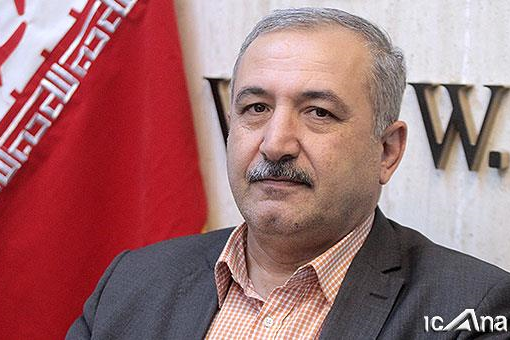
An lawmaker in Tehran says the Judiciary has indicted him for his condemnation of killing of Kurdish people in western Iran by security forces.

An lawmaker in Tehran says the Judiciary has indicted him for his condemnation of killing of Kurdish people in western Iran by security forces.
Jalal Mahmoudezadeh, who is representing the people of Mahabad in the Iranian parliament said Wednesday in a tweet that he has been summoned many times over the past few days but did not provide any details which organization has summoned him.
“Instead of following up on the rights of the protesting people and the families of the victims of Mahabad and Kurdistan cities, the judiciary has filed a lawsuit against me as a supporter of the same bereaved people!!!” added Mahmoudzadeh.
However, he vowed “I will stand by my honorable people in any situation.”
Following the killing of people in Mahabad by the regime forces, Mahmoudzadeh November 19 strongly criticized the crackdown on people in Kurdish cities saying that the protesters must be heard.
In an interview he said most of the people are unemployed in Kurdish cities and they are angry, so the security forces must stop harming civilians.
He added the people are being killed by live rounds, but instead of identifying those who have killed people, “an organization has filed a lawsuit against me.”
Since last week, the Islamic Republic has intensified its repression of Kurdish-majority cities and towns in western provinces of the country following reports that parts of some small towns have fallen into the people’s hands. The majority of Iran's 10 million Kurds live in the western parts of the country.
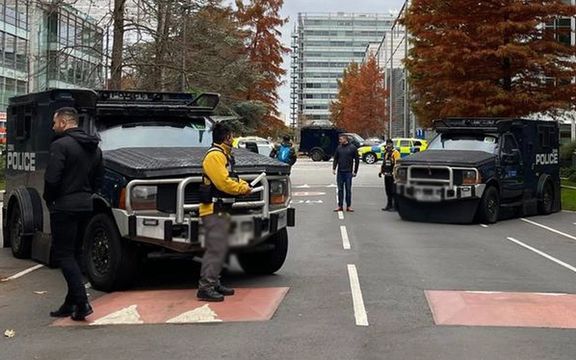
The Israeli Mossad alerted UK authorities about an impending Iranian plot to carry out terrorist attacks against Iran International’s journalists based in London.
Israel’s Channel 11 reported Monday, November 21, that Mossad informed Britain’s spy agency about the threats facing two journalists working for the London-based channel.
According to further information obtained by Iran International, threats against its journalists, revealed by the Metropolitan Police earlier this month, came from the same team that sought to target Israel’s former consul general in Istanbul, Yosef Levi Sfari, who was rescued by authorities and sent back to Israel.
In June, Israeli and Turkish media reported that a terror cell sent to Turkey by the Islamic Republic was busted, and its eight members who had entered the country with fake Tajik and Italian passports were arrested.
The agents were staying at the same hotel in which Levi Sfari and his partner Roni Goldberg were staying for their vacation, with reports alleging that their other targets were Israeli tourists. "The Iranian squad was caught red-handed at the last minute," the reports added. According to Turkey's National Intelligence Organization (MIT), the eight were arrested in raids on three houses in Istanbul’s Beyoglu district.
The mastermind of the plot was Rouhollah Bazghandi, the deputy head of IRGC’s counterintelligence (Unit 1500). A former senior IRGC official had earlier told Iran International that by using amateur agents to carry out the attacks against Israeli targets in Istanbul, Bazghandi dealt a heavy blow to IRGC Intelligence Organization. He was also in charge of thwarting plots against Iran's security officials inside Iran; however, his involvement in the Turkey plot, and apparently his absence, among other reasons, turned Iran into a safe haven for Israeli Mossad agents who launched several sabotage operations and assassinations.
An intelligence source told Iran International that Bazghandi is the man who was in charge of the failed attack against its journalists.
London’s Metropolitan Police formally notified two of our journalists early in November of “imminent, credible and significant risk” to their lives and those of their families. Other staff members were informed directly by the police of separate threats.
The Scotland Yard has also placed armed police forces outside Iran International’s headquarters since mid-November, following further public threats by the Islamic Republic’s authorities – such as the intelligence minister and top Revolutionary Guard’s commanders against the channel.
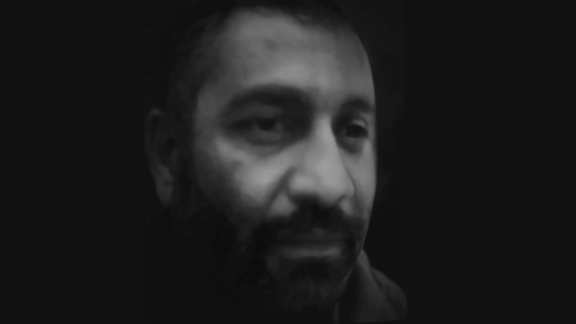
Britain’s MI5 said on November 16 that UK authorities have discovered at least 10 “potential threats” since January to “kidnap or even kill British or UK-based individuals perceived as enemies of the regime.”
Faced with nationwide antigovernment protests since mid-September, the Islamic Republic has blamed foreign-based Persian broadcasters such as BBC Persian and Iran International of “fomenting unrest”, while all media in the country are under tight government control and present protesters as “rioters” and “terrorists”.
Iran’s Intelligence Minister Esmail Khatib on November 9 said the Islamic Republic regards Iran International as “a terrorist organization,” adding that its workers and anyone affiliated with the channel will be pursued by the Ministry of Intelligence.
Iran has a long record of targeting dissidents and independent journalists who found refuge in other countries. In the latest example of terror operations abroad, Iranian intelligence abducted dissident journalist Ruhollah Zam who was visiting Iraq in 2019 and took him back to Iran where he was executed in 2020.
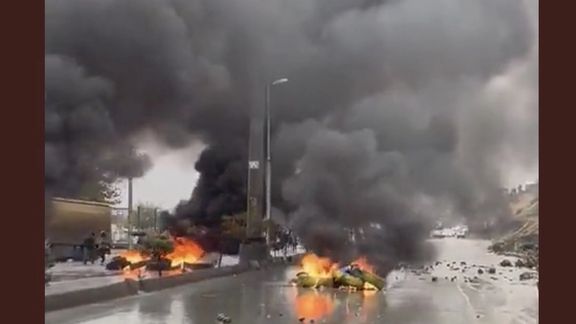
The State Department told Iran International Wednesday that the US is “greatly concerned” over the Islamic Republic’s “escalating violence” against protesters.
In response to questions sent by Iran International, the State Department said that the US is particularly worried about violence in Mahabad, a Kurdish majority city in western Iran. Government security forces escalated violence against protesters in Kurdish majority cities in the region on November 16 and since then more heavily armed units have been deployed to the region.
“Iran's leaders are blaming so-called separatists, and they continue to blame the United States, for the protests unfolding across their country. In fact, Iran's leaders have no one to blame but themselves,” the State Department said in an email.
Since the protests began in mid-September, top officials of the clerical regime have been blaming foreign “enemies” for fomenting the uprising, the biggest since the establishment of the Islamic Republic 43 years ago. After government intelligence and security forces failed to end the unrest, the government began blaming “separatists” for encouraging and supporting the protests and particularly targeted Iranian Kurds.
But the State Department said, “The regime's brutal crackdown, along with years of denying Iranians their human rights and perpetrating state-sponsored violence against women, show that Iran's leaders seem incapable of listening to their own people.”
Activists have called for large protests Thursday across the nation to support the Kurdish cities targeted by military units. Already there have been protests in other cities to condemn the violence. A significant number of Kurds in Iran are Sunnis and this week a prominent Sunni religious leader, Mawlana Abdolhamid of the Sunni Baluch population in southeastern Iran voiced support for them. The Baluch have also also brutally targeted by government forces since September 30.
“We continue to pursue accountability for those involved and support the Iranian people in their pursuit of freedom,” the State Department said.
More uranium enrichment
On the question of Iran expanding its nuclear program by more uranium enrichment at a new atomic site, the department said the US is aware of Iran’s claims that it is enriching at 60-percent and already has a large stockpile of highly enriched fissile material “for which it has no credible civilian use.”
After 18 months of negotiations to revive the Obama-era nuclear accord known as JCPOA, talks came to an impasse in August, with the US dismissing Iranian demands that it said were outside the JCPOA framework.
Last week the governing board of the International Atomic Energy Agency (IAEA) passed a resolution that censured Tehran for lack of cooperation with the UN watchdog. Iran responded by threatening “an appropriate response” and later announced it had started enrichment at its Fordow nuclear facility.
“Iran's apparent notion that it could somehow pressure the IAEA or its Member States on the issue of ongoing safeguards investigations into possible undeclared nuclear material and activities in Iran by further escalating its uranium enrichment activities is deluded,” the State Department wrote to Iran International.
The dispute with the IAEA concerns undeclared nuclear activities two decades ago, but the international watchdog is demanding clear answers from Tehran. Foreign Minister Hossein Amir-Abdollahian said Thursday that Iran expects the IAEA to shelve its investigation before a deal is made to revive the JCPOA.
“As we have made clear, Iran's continued nuclear escalations are unconstructive, and they will not provide Iran with any leverage,” the State Department told Iran International.
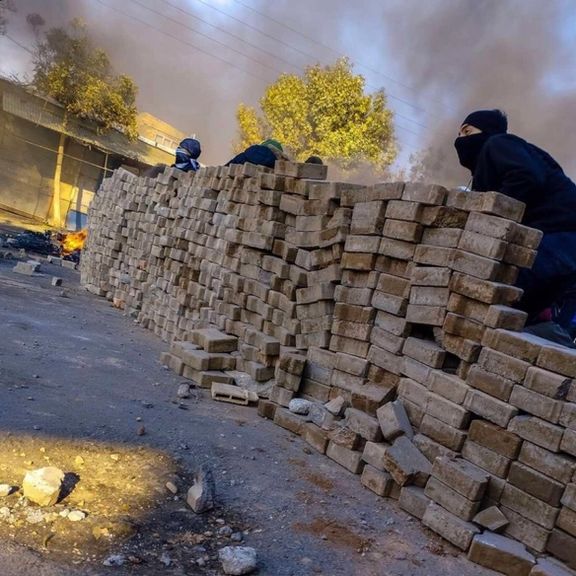
A human rights network says over a dozen Kurdish citizens have been killed during the suppression of protests by the Iranian regime during November 19-21.
The Kurdistan Human Rights Organization in a report announced, "during the three days at least 14 Kurdish citizens have been killed in the cities of Javanrud, Piranshahr, Sanandaj, Dehgolan and Bukan” in western Iran.
Hundreds of people have also been arrested and a large number have been injured, it stated, adding that there is no information about the condition and whereabouts of many detainees.
On Tuesday, Hengaw Human Rights Organization stated that during popular protests in Kurdish cities from November 15 to 21, “at least 42 Kurdish citizens were killed by direct fire from government forces and over 1,500 people were injured.”
Last week protests were held to mark the anniversary of the November 2019 uprising in Iran as part of the ongoing nationwide protests to topple the Iranian regime, but demonstrations were met with more violence in Kurdish cities.
A series of nationwide protests in Iran, sometimes known as Bloody November, took place in 2019. Initially triggered by a 50 to 200-percent increase in fuel prices, the demonstrations quickly turned into calls for the overthrow of the government and Supreme Leader Ali Khamenei.
Oslo-based Iran Human Rights Organization in its latest report announced Tuesday that at least 416 people including 51 children and 27 women have been killed by security forces in the ongoing nationwide protests.
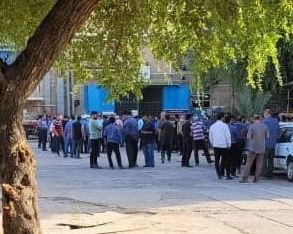
In the tenth week of antigovernment protests in Iran, workers and employees of different sectors continue their strikes and called Thursday for more nationwide action.
In the eastern religious city of Mashhad fire fighters gathered in front of the governor's office on Wednesday demanding their rights including pay increases and housing benefits.
A group of workers at Bahman Diesel Company in Qazvin near capital Tehran also went on strike to put further pressure on the government.
Based on reports received by Iran International, a group of employees of South Aluminum Company in Lamerd city of Fars province also stopped working on Wednesday.
Earlier, the Cooperation Center of Iranian Kurdistan's Political Parties called on political entities, civil activists and people from all walks of life to organize a general strike on Thursday, November 24, to show support for the Kurdish people.
In recent days, the Islamic Republic has intensified its crackdown on antigovernment protests in Kurdish areas with military vehicles deployed and live bullets used against people.
Strikes of employees and workers have always been witnessed in recent years, but they have intensified since the beginning of the nationwide uprising against the Islamic Republic.
Strikes were instrumental in the overthrow of the monarchy during the 1979 revolution. This time around protesters have urged all groups — including merchants in the bazaars, teachers and workers in the oil sector — to stage strikes in the hope that this would turn the latest unrest into a revolution and lead to the overthrow of the theocracy.
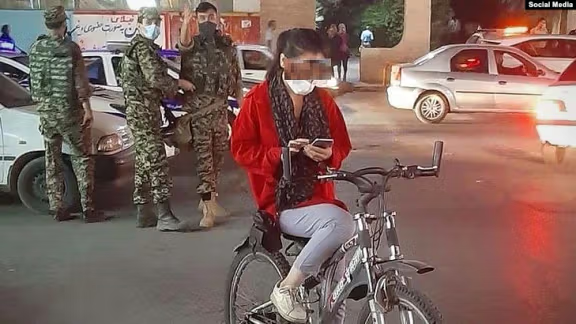
In a leaked audio file, a US-based veteran IRGC commander is heard calling for monitoring to better understand the current wave of opposition against the Islamic Republic.
Hacktivist group ‘Anonymous’ -- that has focused its cyber operations on Iran since the current wave of protests started mid-September – released Monday audio messages by someone who is claimed to be Nader Safaverdi, one of the former commanders of 5th Nasr Division.
The unit, known as Sepah-e Nsar Corps, is one of the divisions of IRGC’s ground force was formed with recruits from northeastern Khorasan province in 1982 during the Iran–Iraq War. The unit fought in several of the important operations during the conflict and after the war was stationed in the province near the border with Afghanistan.
Safaverdi, 67, who apparently has been living in the US since 2007 or 2009, is not well-known in the media but was evidently close to Esmail Ghaani (Qaani), the current commander of IRGC’s Quds (Qods) Force -- a division primarily responsible for extraterritorial military and clandestine operations – and to Parliament Speaker Mohammad Bagher Ghalibaf (Qalibaf), both former commanders of the 5th Nasr Division.
The files seem to be audio messages shared in a WhatsApp or Telegram group with many IRGC ranking members, as Safaverdi started his message with greetings to Seyyed Hossein Mousavi and Hadi Sa’adati, both IRGC commanders formerly serving in the 5th Nasr Division. The group is probably comprised of IRGC members hailing from Khorasan province because during his message Safaverdi once said he would be invited to their meeting if he was still in Mashhad, and referred to similar meetings organized by Abbas Shamlou, another IRGC commander that used to serve as the governor of Mashhad.
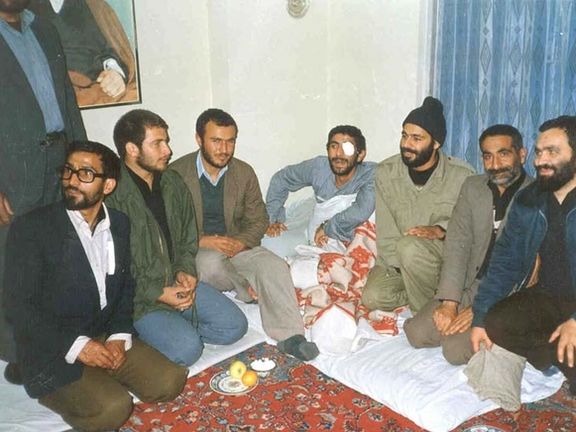
He urged his fellow comrades for “unbiased and clear monitoring” of the activities of foreign-based opposition figures and the protesters in provinces. He said one of the ways to understand the movement against the Islamic Republic is by heeding his advice, and that of other regime insiders who live abroad.
Criticizing “his friends" for limiting themselves to information released by Iran International, BBC, VOA, and other dissident outlets, he said monitoring means being aware of statements released during protests against the Islamic Republic in other countries and claimed that he has access to such information.
He mentioned the gatherings in Berlin and Canada, where 50,000 to 100,000 people held protest rallies, as the largest demonstrations against the regime. In a tone as if he is teaching something new to the group, Safaverdi said the slogans by the Iranian expatriates are not like what they have heard in the past 43 years since the Islamic Revolution. He argued that the current wave of the protests is not in support of any specific ethnicity or even the Iranian royal family. “They officially chant slogans in support of the country’s integrity,” he said. He claimed that another motto the protesters follow is distancing themselves from the older opposition groups or figures, such as Reza Pahlavi or the exiled group Mojahedin Khalq organization, known as MEK.
He added that the closest figure to a leader the foreign-based opposition has, is Canada-based activist Hamed Esmaeilion -- who lost his daughter and wife in the downing of a Ukrainian passenger plane in January 2020 by the Revolutionary Guard. The veteran IRGC commander believes that he is the symbol of an Iranian hurt and oppressed by the regime.
Safaverdi then mentioned the Islamic Republic’s lobby groups in the US including allegedly NIAC– or the National Iranian American Council – saying that the opposition movement has also distanced itself from such groups in a clear message that they would not negotiate with the Islamic Republic. He said that he believed NIAC was formed upon an order by Supreme Leader Ali Khamenei to follow the Islamic Republic's agenda and mentioned some examples of their long history of lobbying for Iran. For instance, he mentioned Trita Parsi, a former NIAC president, as the courier between Khamenei and former President Barack Obama. Safaverdi claimed that NIAC is being devastated by the current front of opposition as its members are even banned from attending the events against the Islamic Republic.
Safaverdi claimed the new opposition keeps calling on world bodies and countries to increase diplomatic pressure on Tehran, adding that anyone who supports lifting the sanctions on the Islamic Republic or negotiating with the regime has no place in the current opposition, which has a global consensus.
He also claimed that the new opposition has a wide range of influence both inside and outside the country, from students to teachers and professors, from NASA scientists to employees of Google and Facebook, noting that these new faces have not been identified before the current wave of protests.
He urged his fellow group members to deliver his points to the authorities, including Ghalibaf and President Ebrahim Raisi – also hailing from Mashhad – calling himself an “American gladiator” who is spending every minute of his days on the issues about the Islamic Republic. Safaverdi said he had never seen such a universal unity and consensus behind a cause before the current wave of the protests in Iran. He also inadvertently praised the main motto of the protests – Women, Life, Liberty -- as something that resonates with all the people of the world.
Note: NIAC denies it is affiliated with the Islamic Republic or acts as a lobby group for the Iranian government.